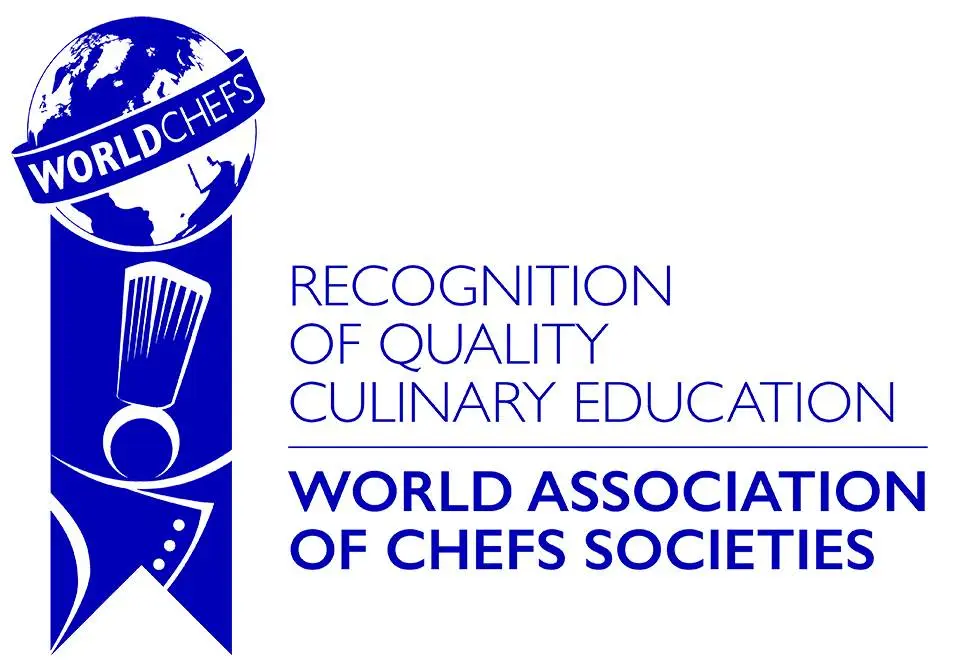
1. Qualified culinary director- At least one person must be assigned to be directly involved in the culinary program’s development and administration, and must be qualified to do so based on a professional background and educational experience. That person may also have teaching roles, operational and administrative responsibilities. The culinary director must be able to show evidence of culinary education, training and experience which may include a professional certification from a local chefs association or Worldchefs. A formal Culinary Director Profile Sheet must be completed and sent in along with appropriate curriculum vitae and other evidence of professional accomplishments.
2. Qualified faculty and instructors- All faculty, instructors and trainers must possess adequate skills, knowledge and background to allow them to adequately teach students, as determined by the country’s department of education, training institutes, chefs association or Worldchefs standards. A combination of professional training, apprenticeship and scholastic learning (earned degrees and diplomas) is preferred. Evidence must be presented to showcase each teacher’s credentials as well as any plans for continuing education and professional development. Evidence may be presented in a single form by listing the names of each lead faculty member, their education and experience.
3. The applicant has a record of offering continuous classes or programs throughout its history and has an adequate student population to support continued growth. Evidence of this can come in the form of a chart or graph detailing the number of courses offered, the length of the courses and the enrollments for each.
4. Formal lesson delivery models. The company, association or institution’s learning styles and practices may vary from demonstrations and lectures to hands-on practice and live-work experiences (either simulated or in public restaurants), but all must have formal, organized plans of execution and follow-up. Evidence of lesson plans which include detailed and specific learning outcomes and assessments (where appropriate) must be submitted for review.
5. Adequate facilities- Evidence must be presented that showcase the training and learning facilities and environment which should include practical training kitchens, lecture and demonstration classrooms where appropriate. All facilities must be adequately equipped and maintained for the administration of teaching and learning, and must be in proper proportion to the total number of students enrolled. A sample collection of digital photographs are sufficient to prove the adequacy of the facilities and equipment.
6. Commitment and support- The parent company, association, school, college or institution that offers the culinary program must show evidence of their support for the continuous physical and financial support for the culinary program. Evidence may come in the form of printed documents where commitments are publicly marketed or in letters of endorsement from company officers or administrators.
7. Mission statement: goals and objectives- A clear and well defined program mission statement must be publicly marketed to all potential students and sponsors. The mission statement must be supported by programmatic goals and objectives that are also well developed and available to all interested parties. Evidence must come in the form of printed brochures, catalogs or web pages which deliver promotional materials to the public and may be supplemented with other pieces of evidence.
8. Sanitation, food safety and hygiene. There must be evidence to support the applicants overall commitment to healthy eating including sanitation, food safety, personal hygiene and nutrition (where appropriate). Evidence can come in the form of statements in catalogs, brochures or lessons that address the teaching of and compliance with sanitation guidelines.
9. Learning centers, libraries or other education support centers: Learning centers, libraries and other educational support areas must adequately support learning and should include a variety of the following resources: published books, theses, pamphlets, booklets, manuals, internet websites, and other relevant academic research papers, magazines and or videos (DVDs).
10. Industry support: Must meet or exceed local standards for quality food production and service and have support from the local professional community or governmental agency charged with granting educational license. Evidence may come in the form of letters of support from the local chefs association, other local professional chefs, recent attendees (graduates), or copies of current operating certificates (governmental).
11. The institution must have a well defined and publicized set of policies and procedures in relation to complaints and grievances which may be raised by students or stakeholders. Evidence can come in the form of printed materials.
12. The company, association or institution (the applicant) offering culinary and pastry art programs are legal operating businesses as defined by the laws of the state or country in which it operates. Evidence to support this claim can be in the form of a business license, certificate of operation or any official government notice.
| Cookie | Duration | Description |
|---|---|---|
| cookielawinfo-checkbox-analytics | 11 months | This cookie is set by GDPR Cookie Consent plugin. The cookie is used to store the user consent for the cookies in the category "Analytics". |
| cookielawinfo-checkbox-functional | 11 months | The cookie is set by GDPR cookie consent to record the user consent for the cookies in the category "Functional". |
| cookielawinfo-checkbox-necessary | 11 months | This cookie is set by GDPR Cookie Consent plugin. The cookies is used to store the user consent for the cookies in the category "Necessary". |
| cookielawinfo-checkbox-others | 11 months | This cookie is set by GDPR Cookie Consent plugin. The cookie is used to store the user consent for the cookies in the category "Other. |
| cookielawinfo-checkbox-performance | 11 months | This cookie is set by GDPR Cookie Consent plugin. The cookie is used to store the user consent for the cookies in the category "Performance". |
| viewed_cookie_policy | 11 months | The cookie is set by the GDPR Cookie Consent plugin and is used to store whether or not user has consented to the use of cookies. It does not store any personal data. |